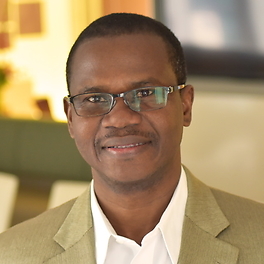Suessmilch Lecture
The Place of Demography in Global Development Discourse in the 21st Century
Alex Ezeh
Online Presentation, September 13, 2022
As part of the Suessmilch Lecture series, Alex Ezeh from Drexel University offered some thoughts on why demography remains key to improvements in human wellbeing in both rich and poor countries.
Abstract
Throughout much of the second half of the 20th century, demographic concerns were at the core of most discourses on global development. It formed a critical component of the priorities of multilateral and bilateral agencies as well as private foundations. The focus was centered around rapid population growth in poorer countries and support for family planning programs accounted for at least three-quarters of the total support for population-related activities. Demographic tools and methods were applied to understand the complex relationships between population change and development outcomes. By the end of the 20th century, however, the relevance of demography to global development had virtually disappeared. Yet, today, population change ranks alongside climate crisis and growing inequality as existential threats to our current civilization. In this lecture, Alex Ezeh offers some thoughts on what happened to demography and why it remains key to improvements in human wellbeing in both rich and poor countries.
About the Speaker

© Alex Ezeh
Dr. Ezeh is Dornsife Professor of Global Health at the Dornsife School of Public Health, Drexel University. Dr. Ezeh’s work focuses on urban health, population change, and models to strengthen knowledge-based institutions. Previously, he served as the founding Executive Director of the African Population and Health Research Center (APHRC) and guided APHRC to become one of Africa’s foremost regional research centers. Dr. Ezeh also initiated and directed the Consortium for Advanced Research Training in Africa. He serves on numerous international and non-profit boards, including the UN High-Level Advisory Board for Economic and Social Affairs and currently Co-Chairs a new Lancet Commission on Adolescent Health and Wellbeing. He received the London School of Hygiene and Tropical Medicine and Royal Society for Tropical Medicine and Hygiene’s 2020 George Macdonald Medal; The World Academy of Sciences 2018 Prize for the Social Sciences; and holds two Honorary Doctor of Science degrees.
Register to Take Part
You would like to attend the Süßmilch Lecture? You are very welcome. Please register by writing an e-mail to gosselck@demogr.mpg.de.
Süßmilch Lecture, September, 13th from 3 p.m. to 4:30 p.m. (Rostock time)